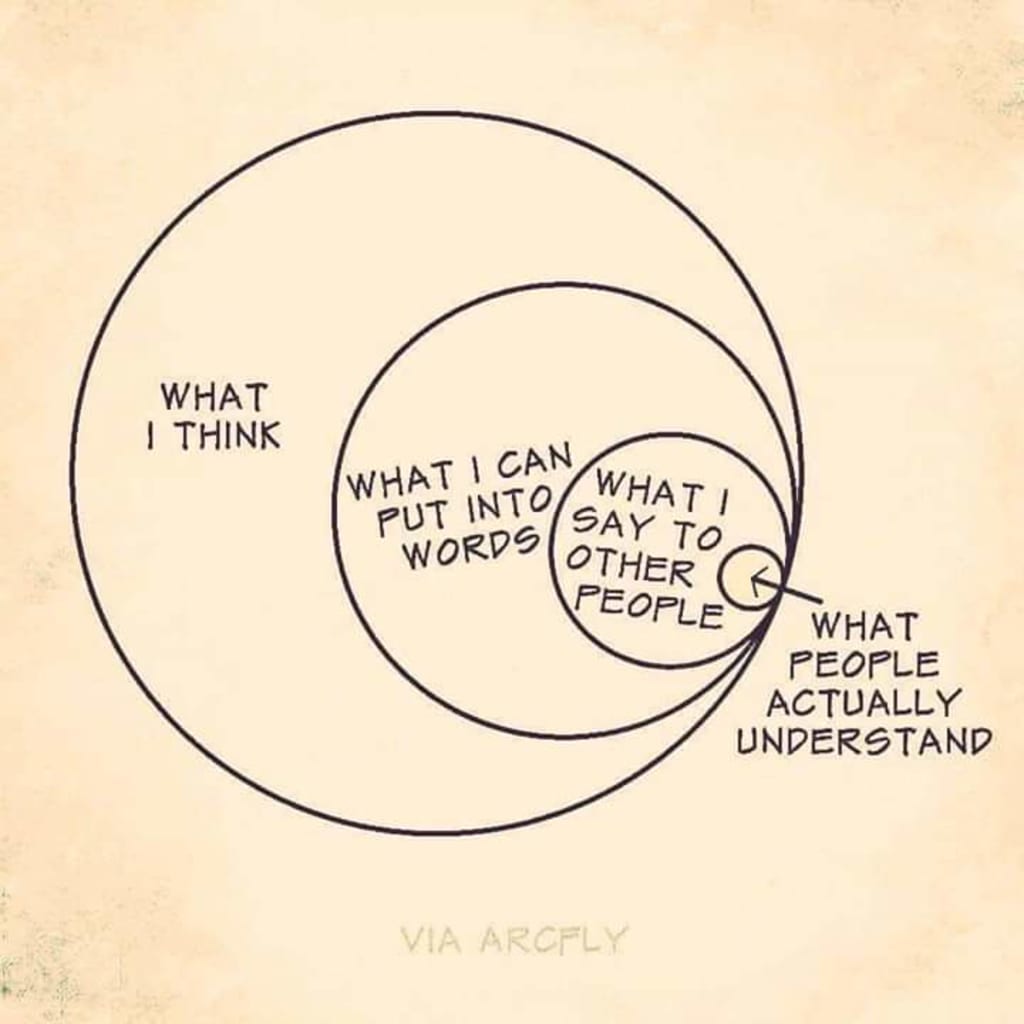Multiple Personalities???
How language affects personality

The person we project for others to see is based off of who we believe we are and who the culture we are immersed in says we are. It's no secret that the cultures we live in influence our behavior but so does language. When a person who speaks two or more languages navigates life, it's very possible that their personality can change, making their identity completely different.
Each language has individual cultural values, assumptions, beliefs, mindsets, and attitudes that are communicated in that culture's tongue. Similarly, language is formed by the culture, such as the way that slang and inside jokes that apply to certain aspects of a specific culture are developed. When a person hears a language that is foreign to them, they automatically make unintentional assumptions about the language or even the speaker. For instance one may hear a woman speaking French, and perceive her as: romantic, elegant, or sophisticated. One may hear a Russian woman on the other hand and perceive her as: harsh, mean, or rebellious. The truth is both women may have been simply speaking about the coffee they had with breakfast, but cultural assumptions and personal perceptions may lead to big misunderstandings.
How then does that affect personality shifts with communication in one language or another? Well, switching from one language to another means also shifting from one cultural perception to another, however big or small those perceptions may be. Let's create a few senerios: Americans generally are friendly to strangers in public places, waving and sharing common greetings while passing by on the street. Most Eastern Europeans on the other hand, pass by many strangers on the street each day without a smile, greeting, or head nod. Now, take for example an American girl who grew up in Eastern Europe who speaks both languages well. She can easily adjust depending on the culture she is in, both in language and her behavior. On a street in America she will probably nod or smile back at a stranger who nods his head at her and asks how she is, or maybe even return his greeting with, "good, how are you?" But while walking on a street in Eastern Europe she may walk with her head straight and not smile or greet every stranger she passes. For the next example let's take a girl who is from Eastern Europe, speaks English and her native language well and visits America. As she passes strangers on the street she may never once smile, make eye contact or greet them. Does that make her any less friendly or any less of a nice person? Absolutely not! However on the other side, the American girl who grew up in Eastern Europe, and easily switched between cultural norms and language...was she fake by not being completely herself no matter where she was? Absolutely not! But without a doubt, her personality has changed a bit.
While the previous example of passing a stranger on the street may seem small and unimportant, these personality by culture changes can add up or come in even bigger forms. Studies have shown that language impacts emotions too and how a second language allows us to have a slight disconnect from emotion. For example: someone who doesn't cuss in their mother tongue but knows another language, may end up letting emotion consume them in a stressful situation and cuss in their second language. This is almost a disconnect or emotional shortcut allowing this person's actions to make their personality behave completely different. Another example is a foreign student studying in the United States. He is shy and keeps to himself. His classmates think he is too quiet and kind of creepy. When he goes home and is in his mother tongue however, he is outgoing and makes people laugh. His personality has changed.
Because language influences emotions and cultural perceptions lead to actions and behaviors, it can be said that language really does change personality. A bilingual person may feel fearless in one language and shy in another. A person who knows a second language may be extroverted in one language and more introverted in their other language. So, next time you see a foreigner at your school, workplace, or on the street, think twice before assuming something about who they are and get to know them first.
I appreciate you taking time to read this. If you liked what you read please take a moment to like and share with friends and family. Also be sure to check out my profile to see more topics I've written on and if you're feeling generous my tips are always open. Thank you!
About the Creator
Madeline Keys
I'm just a writer trying to find her voice. I'm passionate about writing things I'm learning about and things I've experienced.
I hope you enjoy exploring my page!






Comments
There are no comments for this story
Be the first to respond and start the conversation.